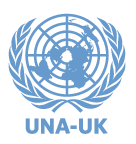A UN Association of the UK (UNA-UK) publication on the post-2015 development agenda features analysis, case studies and recommendations from over 50 contributors, including on: funding development; from aid to cooperation; delivering results; sharing knowledge; and widening participation.
 September 2014: A UN Association of the UK (UNA-UK) publication on the post-2015 development agenda features analysis, case studies and recommendations from over 50 contributors, including on: funding development; from aid to cooperation; delivering results; sharing knowledge; and widening participation.
September 2014: A UN Association of the UK (UNA-UK) publication on the post-2015 development agenda features analysis, case studies and recommendations from over 50 contributors, including on: funding development; from aid to cooperation; delivering results; sharing knowledge; and widening participation.
In the foreword to ‘Global Development Goals: Partnerships for Progress,’ UN Deputy Secretary-General Jan Eliasson calls for building on the Millennium Development Goals (MDGs), taking on unfinished tasks and keeping ambition high to achieve a transformative agenda to inspire and mobilize the world. Human development is not only about lifting people out of poverty but also “making their escape permanent and enabling them to reach their full potential,” UN Development Programme (UNDP) Administrator Helen Clark observes. Clark recommends strong partnerships and goodwill to achieve inclusive, effective governance, equity, human rights and the rule of law.
Contributions on funding development address: financing development goals; relieving debt burdens; creating effective tax systems; making decent work and inclusive growth a reality; financing infrastructure in Latin America and the Caribbean; and ensuring quality, universal financial services. Noting that aid has historically been used as a foreign policy tool, Talaat Abdel-Malek, former chair, Organization for Economic Co-operation and Development’s Development Assistance Committee (OECD-DAC), discusses changing the aid relationship to achieve better development outcomes, urging both aid providers and recipients to change their mindsets.
The section ‘From aid to cooperation’ discusses: collaboration “infrastructure”; African development; successful, scale-able partnerships; South-South cooperation; sustainable trade investments; and financial remittances.
‘Delivering results’ includes chapters on: partnerships for results; knowledge and skills; excluded communities and ensuring progress among vulnerable groups in the Sustainable Development Goals (SDGs); marginalization and the Least Developed Countries (LDCs); disaster risk management (DRM); resilience; legal recognition of social and economic rights; private sector progress; illicit financial flows; and tensions between environmental protection and economic growth, including the potential of the green economy and renewable energy. Gyan Chandra Acharya, High Representative for LDCs, landlocked developing countries (LLDCs) and small island developing States (SIDS), argues that LDCs’ needs and priorities must be prioritized in the post-2015 development agenda “simply because they are at the bottom of the development ladder.” Margareta Wahlström, Head, UN Office for Disaster Risk Reduction (UNISDR), suggests the post-2015 framework for disaster risk reduction (DRR) can bridge the SDGs and the expected 2015 climate change agreement, stressing the need for interlocking, interdependent and mutually reinforcing frameworks.
In ‘Sharing knowledge,’ contributions consider: access to medicines; the data revolution, education as a catalyst for development; supportive pathways for achieving SDG Goal 16 on peaceful and inclusive societies, access to justice and effective and accountable institutions; information and communications technology (ICT) for development; and water and sanitation cooperation.
“The UN needs to establish a new role” to find solutions to our planet’s problems, Gunilla Carlsson, member of the UN High-Level Panel on the Post-2015 Development Agenda (HLP) says in her contribution. Carlsson recommends, inter alia: approaching problems from peoples’ perspectives rather than State interests; and improving coordination, monitoring and evaluation of the UN’s work on the ground. Other contributions in the ‘Widening participation’ section consider the role of the private sector, parliaments, unions and ordinary people. Mariana Rudge, Beyond 2015, highlights barriers to meaningful participation and progress in addressing them.
UNA-UK launched the publication at several events in New York, US, and plans to host a launch event in London, UK. It is UNA-UK’s second report on the post-2015 development agenda. [Publication Website] [Publication: Global Development Goals: Partnerships for Progress] [IISD RS Story on UNA-UK 2013 Report]